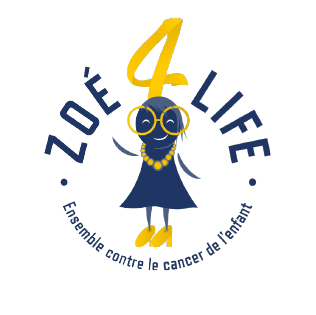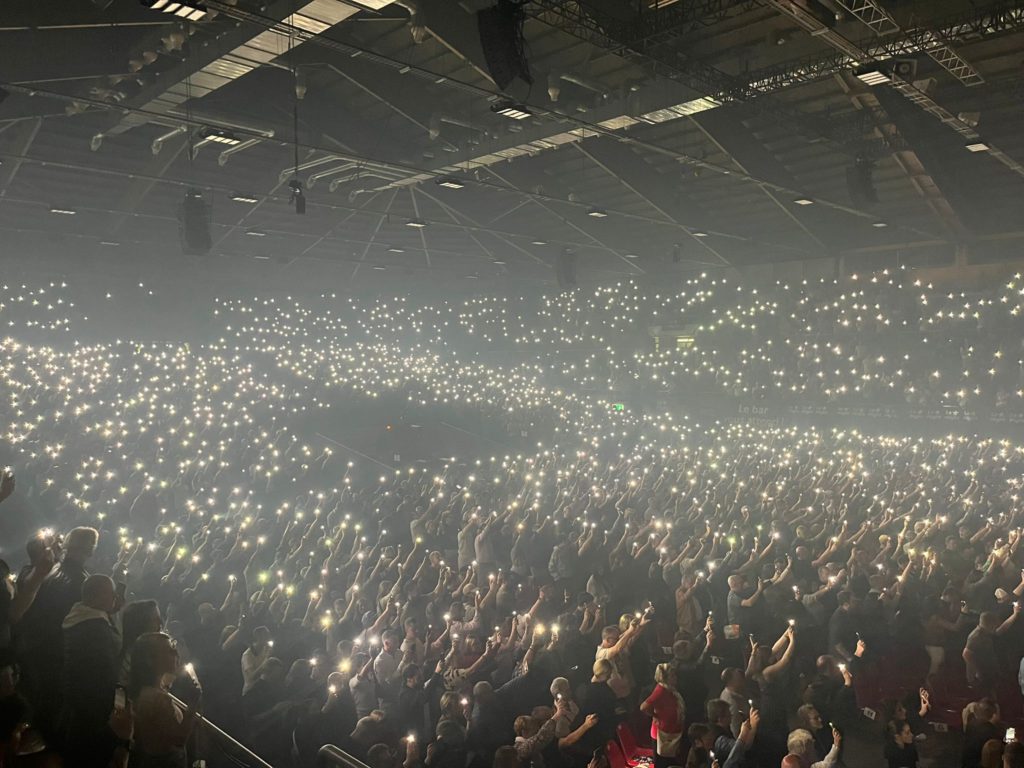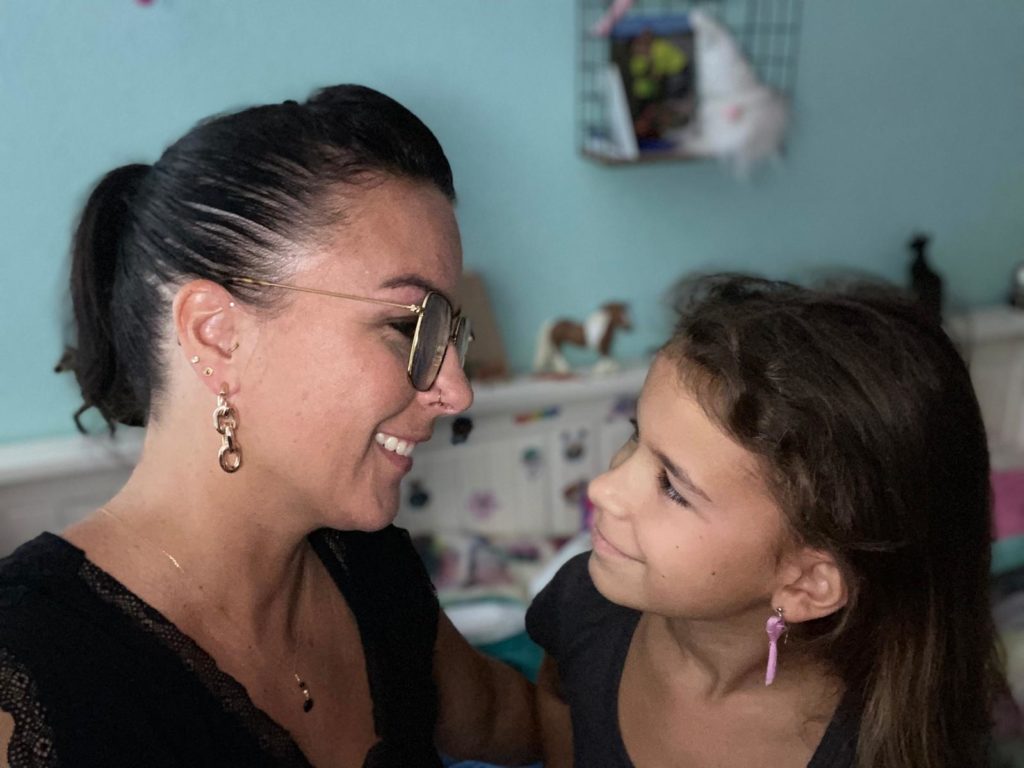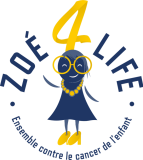A chain of solidarity to give Ukrainian children with cancer a chance

Sitting on this plane taking off from Poland, I can feel the emotions welling up inside me. Tiredness is felt throughout my body, my throat knots, tears are at the edge of my eyes. I close my eyes and concentrate on controlling my emotions. In a few minutes, I'll be back on my feet, coordinating with the rest of the team everything we have to do with the families we're taking back to Switzerland.
Since the beginning of the war in Ukraine, Zoé4life has responded to the appeal for help from our Ukrainian and Polish colleagues. Other organizations like ours are asking the rest of the world to welcome and care for Ukrainian children with cancer.
In Ukraine, these children don't stand a chance against cancer if they don't have access to medicines or hospitals for treatment. Their treatment has stopped since the war began.
I realize that the three weeks we've just spent, working from dawn until late at night, getting up at night during the now-familiar insomnia to get ahead, and eating in front of our computers or in our cars, probably resemble what our friends went through for us in 2013 when we left for Florida with Zoé.
Nicole, who is the Swiss contact for the parents' organizations, has been coordinating with hospitals in Switzerland since the beginning of March to see how many children we could bring back.
Complicated coordination to be sure of how many children each Swiss center will be able to accommodate. Time is running out, we have to act fast. Childhood cancer doesn't wait, and neither does war. We work hand in hand with Kinderkrebs Schweiza Swiss organization like Zoé4life and the Ronald McDonald Foundation which will take care of accommodation for patients and their families. Zoé4life takes care of transport to the accommodation or hospital.
Gaëlle and I focus mainly on logistics. We call coach companies, then airlines and private airlines. Nicole contacts all the airlines, who all want to help, but sometimes with overpriced answers. All solutions are considered. Time is running out. Bus travel was no longer an option. Some of the children have been without treatment for weeks. The trip must be as comfortable as possible for them. Gaëlle contacts the ambulance centers to transport the patients quickly to the various hospitals.

We're ready to pay whatever it takes to get these children back. It's out of the question to leave them there without doing anything. After dozens and dozens of phone calls and endless emails, negative responses, possibilities but not enough flexibility... we finally have a plan.
Thanks to her boss at Skyguide, Nicole is in contact with Easyjet's top man. And the unthinkable happens: EasyJet informs us that they are making a plane available to us! A very good friend, a captain, wanted to be part of the adventure, and a crew was put together.

Then the coach company, Thomas Marti Voyages, confirms that we won't be asked to pay for the hire of the coaches, that the drivers will come on a voluntary basis and that the fuel will be paid for by the Raiffeisen bank in Assens.

And now it's the turn of the SPS ambulance drivers from the city of Neuchâtel to offer their services. The ambulance drivers will come on their day off, the ambulances will be made available free of charge and fuel will be provided. The same goes for Ambulances Roland, CSU-Riviera and the ambulances of theGeneva Airport.
And so it goes on, forming the links in a long chain, a very long chain of solidarity.
Geneva airport will waive the usual taxes and provide us with Terminal 2 and staff. Gate Gourmet will provide us with a meal on the plane, and the Skyguide team won't charge us anything either, and will lay out a beautiful route for us in the sky so that our plane arrives at its destination as quickly as possible. Everyone wants to help and finds a way to do so.
We're ready!
Between 50 and 60 Ukrainian children with cancer arrive in Poland every day. Somewhere between Krakow and Warsaw, the team at the American hospital St. Jude Global in Memphis has set up a structure in a hotel converted into a clinic to welcome these children and their families. Families can pick up clothes, games and anything else they need. But the journey is still long, and they will take the minimum.
Doctors assess each child to see if he or she is fit to travel, or if he or she needs to be quickly hospitalized in a center in Poland. The child's medical file, written in Cyrillic, is translated into English. This will be a great help to the doctors who take over from them.
The team then calls on the leaders of each country (Nicole for Switzerland), asking how many children their country can welcome and for when.
We have to be available to leave within 48 hours. Because the flow of children is important, and they only spend 48 hours in this clinic before setting off again. Time is of the essence, time is precious, and in this fight against cancer, time is our enemy, because these children currently have no treatment to control, slow down or stop the cancer.
We have a pediatrician who will be leaving with us, a psychologist who both speak Ukrainian, and 2 translators. Next, we have 2 nurses, then Nicole, Gaëlle, Lana and I to manage around 20 children and their families.
We're ready to go, and we'll be leaving some time next week, probably on Wednesday.
The tension mounts because we're on hold, there are constant changes, we have to be flexible, we have to adapt and innovate. And we're tired. Insomnia allows us to finalize all the details.
Each child will receive 1 blue bag with small gifts and each mother will receive 1 pink bag containing a little pocket money for the first few days and small gifts too.
Each mom will also have a small toiletry kit with a few cosmetic items which will be distributed with the snack, organized by volunteers.

We were very disappointed when our contact in Poland informed us that Wednesday would be too late for the children arriving in the weekend convoy, and too early for those arriving on Wednesday. We have to inform everyone involved. All the volunteers, the coach company, the ambulance drivers and EasyJet.
Maybe it'll be Thursday, maybe Friday. Everyone understands the importance of being flexible, because there's no other choice. And yet I let you imagine how complicated it must have been for the professionals to organize their schedules and respect their staff's rest periods in order to help us. We are so grateful to them.
I won't go into the details of coordination between us, the medical teams and our association, which required a great deal of discussion. They see the medical side of the child, while we think of the whole family and their comfort. We're complementary, and we have to learn to work together, to trust each other and respect each other's work. It's easier for us than for them, believe us!
On Wednesday we learn that the departure will be on Friday. Apprehension is mounting. Will we be up to it? What emotional state will his families be in? Everyone imagines that these families will be happy to come with us, but in the end we don't know. They have been forced to flee their country, leaving their families behind and heading into the unknown with a seriously ill child.
By Thursday evening we had received our first passenger list. The doctors are now working to allocate patients. Patients in urgent need of care will be transferred to the CHUV in Lausanne, which is able to receive patients on Friday evenings. Not all hospitals have the manpower over the weekend to take on a patient who doesn't speak the language. You have to think about everything that goes with the patient.
After spending the day making calls, tying up loose ends and finalizing the trip, we go to bed at a very late hour.... The next morning, we wake up early. No matter, we'll sleep later.
We meet the volunteers at the airport and let ourselves be driven by the airport staff and then by the EasyJet cabin crew, who take great care of us.

Thanks to Skyguide clearing the skies, we'll soon be in Krakow.
We leave the whole team behind, while Nicole, Gaëlle, Lana and I hop into a cab bound for the clinic. More than 1h45 of driving with an urge to pee that you can't imagine. But there's no time. The cab ride is an opportunity to coordinate the remaining details for the return trip.

Arriving at the clinic, which is protected by a large gate to prevent curious journalists from filming, we are warmly welcomed by the on-site team. A quick detour to the WC, then we're given a tour of the clinic, and here we are, 20 minutes later, saying goodbye to this incredible team. They do an incredible job, and we thank them warmly. They too will sleep later, we know. Tomorrow, the next convoy arrives from the Ukraine.

The bus is here, the families are settled and waiting for us. A short speech, which a translator translates for us, and we're off in the direction of the airport. We don't speak their language, they don't speak ours. We improvise and figure out how to make ourselves understood, and the translation apps help us. At the back of the bus are six families who have tested positive for COVID. To protect the others, they have been moved to the second part of the bus. A large plastic sheet is taped between them and the rest of the passengers. It's almost shocking, but we have to think of the most vulnerable. We all wear our masks and check on them regularly to make sure everything's going well for them.
These families were in Ukraine the day before yesterday and arrived in Poland yesterday. This morning, they learn that they are leaving for Switzerland...a country they may know nothing about at all.
We received the definitive list of which patient was expected at which center that very morning. There was one more change late in the evening, as one child was not well enough to travel. We identify the families whose children need to get to hospital quickly when we arrive.
The majority of families are single mothers with one child. Some have their grandmother with them. One mother is alone with two children, and one family is made up of a young mother with 4 children and the grandmother who talks to us all the time. She seems worried and we can't understand her. It's very frustrating not to be able to communicate better with these families, with these children. Not to be able to reassure them more and enter into deeper conversations.
The bus journey will be longer than on the outward journey. Faces are tense, revealing the extreme fatigue and pain of what these women have been through... but also the fear of the unknown. On arrival at the airport, we have to check in our luggage and go through security. This will take a long time. We're late, but the plane is waiting.

All hell breaks loose at the airport. We board a bus to take us to the plane, and even though we and our volunteers seem to have coped well with the stress, we're still afraid we've forgotten someone. But we haven't. Phew, everyone's there. We're visible from afar in our T-shirts. Families can easily spot us. In the bus that takes us to the plane, faces relax and smiles break out. We hear OHs and HAs - yes, it's the orange and white plane! For many, this will be their first plane trip. A journey into the unknown, with still a long way to go towards recovery, but in a free country, far from the bombs.
As we take off, a little relief from this tense day is felt as the children scream as if they were on a merry-go-round. For a moment, they seem to have forgotten the war and the illness...
If there are children's laughter when we go through some turbulence, there are also tears on the faces of some mothers. We learn that this one has left behind her son in Poland, who is being looked after by the grandmother. She didn't know she could take him with her.
Then we learn that another has left two of her children in the Ukraine, in the east, where war has been raging for a long time. The village is surrounded and has been bombed. She knows they are alive, but hidden in a cellar. And this one who left her disabled daughter with her husband because she didn't know how she was going to manage here on her own, with two children.
And there are more tragic stories to stir our hearts as mothers. Nicole, Gaëlle and I lived through our children's cancer. But we were in a safe country, surrounded by our loved ones, and our other children were safe at home, not thousands of miles away.
War is solely responsible for this tragedy. I'm outraged, but again, no time to dwell on our emotions.
The plane lands and I'm overwhelmed with emotion as I realize that a welcoming committee is waiting for us at the foot of the plane. The airport staff take charge of the most fragile patients and everyone goes to a room for triage. The airport and EasyJet managers are there to congratulate us, and this is our chance to say thank you in person.
Patients are reviewed by a doctor who takes the time to evaluate each child. He has studied each of the 16 files during the day. In this way, he can decide whether, in addition to the three patients initially scheduled, others need to come to hospital that evening.
This will be the case for another. The ambulances are leaving with some of the patients, and the others will be taken by coach to a hotel in St-Sulpice for the night.
The following day, two firefighters from the Geneva Fire and Rescue Service came to transport two families to Bellinzona, and two firefighters from the SDIS Etraz-Région will take one family to Basel.

Sunday will be a timeless day by the lake. Carousel rides for the little ones and ice cream for everyone put smiles on almost everyone's faces. A short trip to the Olympic Museum, organized by my parents with Nicole's neighbor, who was quickly freed up to help out, enabled these families to have an almost normal day. They would later tell us that it was a moment when they forgot about bombs, war and even cancer.
Monday was the departure of the last families, organized by the buses, but also by the firemen of the SPS of the city of Neuchâtel, and this time I can no longer control my tears. Everyone hugged each other, and we wished them all the best for the future.
We'll be in touch, we're sure.
Since Monday, after completing the administrative formalities for each passenger we brought back, the families have been on their way back to the hospital with their children. Some have already undergone surgery, others chemotherapy, and these families are well looked after by the people in charge of the Maison de la Ronald McDonald Foundation for 5 cities and parents' homes for the other destinations.
For some, a semblance of normal life is quickly restored. We receive a photo of little Oleg with a broad smile on his face. This child became disabled as a result of a brain tumor and was uncomfortable throughout the journey. Today, he has an adapted diet and his big sister will soon be going to school. The family will soon be moving into an apartment.
For others, the road is still long and full of obstacles. Here they can offer their child a chance, a chance that they could not offer their child by staying in Ukraine.
This adventure, this solidarity has been so magical, but so tragic at the same time. I'm so proud that my country, Switzerland, agreed to welcome these children and their families. I'm proud that so many people were involved in making this project a reality, and I'm proud of every single person who helped make it possible. Thank you all, because together we have made a difference for these children and their families.
Natalie Guignard-Nardin - March 2022







